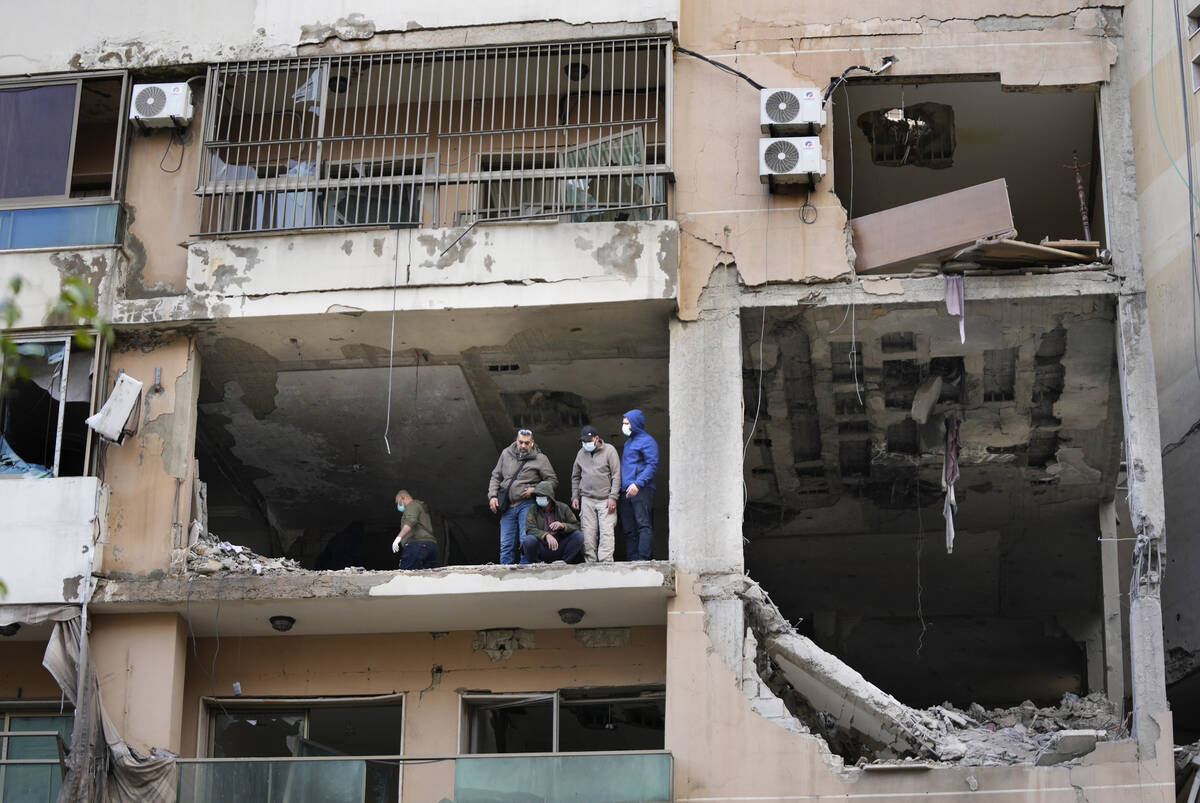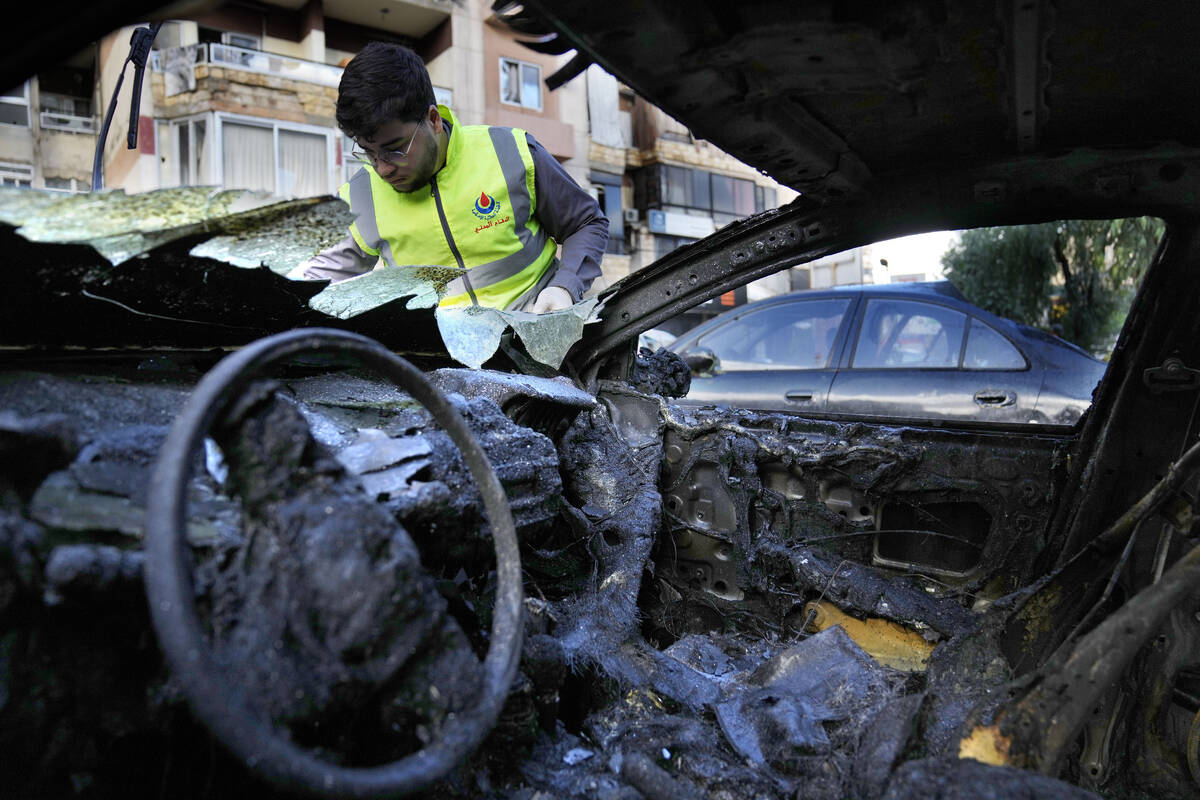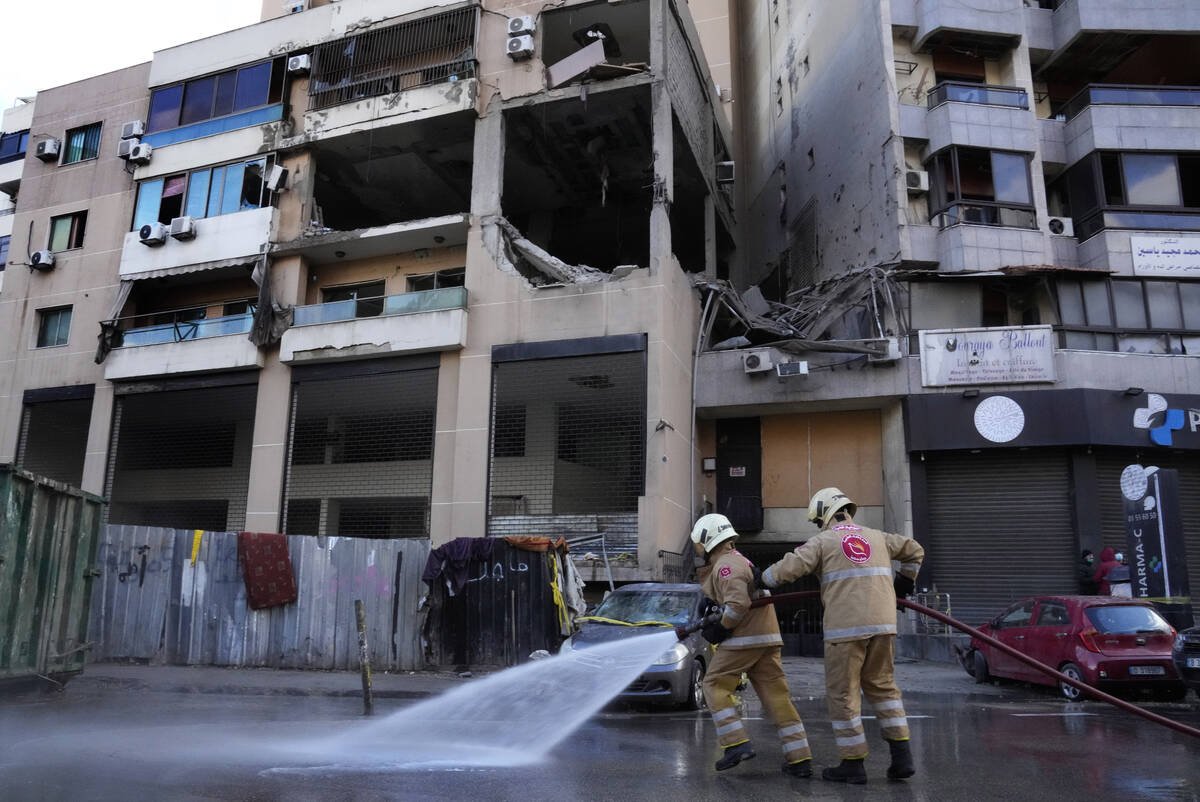Israel’s Mossad chief vows to hunt down Hamas members
JERUSALEM — The chief of Israel’s Mossad intelligence service vowed Wednesday that the agency would hunt down every Hamas member involved in the Oct. 7 terrorist attack on Israel, no matter where they are. His pledge came a day after the deputy head of the Palestinian terrorist group was killed in a suspected Israeli strike in Beirut.
Israel has refused to comment on reports it carried out the killing, but the comments by David Barnea appeared to be the strongest indication yet it was behind the blast. He made a comparison to the aftermath of 1972 Munich Massacre, when Mossad agents tracked down and killed a string of Palestinian terrorists involved in killing Israeli athletes at that year’s Olympic games.
Israel was on high alert Wednesday for an escalation with Lebanon’s Hezbollah militia after the strike in the Lebanese capital killed Saleh Arouri, the most senior Hamas member slain since the war in Gaza erupted nearly three months ago.
The implications of the killing for the war remain unclear. Israel has killed several top Hamas leaders over the years, only to see them quickly replaced. The strike in Hezbollah’s southern Beirut stronghold could cause the low-intensity fighting along the Lebanon border to boil over into all-out war.
In a speech Wednesday evening, Hezbollah leader Hassan Nasrallah promised revenge, repeating his group’s statement that “this dangerous crime” of Arouri’s killing will not go “without response and without punishment.” But he left the audience guessing as to when and in what form.
Nasrallah said Hezbollah had so far been careful in its strategic calculus in the conflict, balancing “the need to support Gaza and to take into account Lebanese national interests.” But if the Israelis launch a war on Lebanon, the group is ready for a “fight without limits.”
“They will regret it,” he said. “It will be very, very, very costly.”
Arouri’s killing provided a morale boost for Israelis still reeling from the Oct. 7 Hamas attack as the terrorists continue to put up stiff resistance in Gaza and hold scores of hostages.
Barnea said the Mossad is “committed to settling accounts with the murderers who raided the Gaza envelope,” referring to the area of southern Israel that Hamas terrorists attacked. He vowed to pursue everyone involved, “directly or indirectly,” including “planners and envoys.”
“It’ll take time, as it took time after the Munich massacre, but we will put our hands on them wherever they are,” he said. Barnea was speaking at the funeral of former Mossad head Zvi Zamir, who died at age 98 a day earlier.
Zamir headed the intelligence agency at the time of the 1972 Munich Olympic attack, in which Palestinian terrorists killed 11 members of the Israeli delegation. Israel subsequently killed members of the Black September terrorist group who carried out the attack.
Looking to Hezbollah
Hezbollah and the Israeli military have been exchanging fire almost daily over the Israeli-Lebanese border since the war in Gaza began.
But Nasrallah has appeared reluctant to escalate it further, perhaps fearing a repeat of the monthlong 2006 war, when Israel heavily bombed Beirut and southern Lebanon. A return of that destruction now would likely heighten opposition to Hezbollah within Lebanon.
At the same time, Hezbollah also faces pressure to show support for its ally Hamas. Leaders in the Palestinian terrorist group clearly expect Hezbollah to have its back.
In an interview Saturday, three days before Arouri’s killing, The Associated Press asked Beirut-based Hamas political official Osama Hamdan if the group was worried about the possibility of Israel assassinating its officials in Lebanon.
Hamdan predicted that Hezbollah would not let that go unpunished, and an all-out war would ensue. “So why would Israel want to do that? Does it want a war” in Lebanon? he asked. “War can happen if Israel acts wrongly and aggressively,” he said, or war might not occur “if Israel takes a step back and acts in a way that is not aggressive against Lebanon.”
Hezbollah vowed “response and punishment” for the strike. Israeli military spokesman Rear Adm. Daniel Hagari said Israeli forces were “on high readiness for any scenario.”
Hezbollah said Wednesday that its fighters carried out at least eight attacks against Israeli posts along the border, including four using heavy warhead Burkan rockets. The statement did not directly link the fire to Arouri’s killing.
The United States has sought to prevent any widening of the conflict, including by deploying two aircraft carriers and other military assets to the region. Secretary of State Antony Blinken was expected in the region this week.
Prime Minister Benjamin Netanyahu and other Israeli officials have repeatedly threatened to kill Hamas leaders wherever they are. The terrorist group’s Oct. 7 attack from Gaza into southern Israel killed around 1,200 people, and some 240 others were taken hostage.
Israel says it has killed a number of mid-level Hamas leaders in Gaza, but this would be the first time since the war that it has reached into another country to target the group’s top leaders, many of whom live in exile around the region.
Arouri was the deputy of Hamas’ supreme political leader, Ismail Haniyeh, and headed the group’s presence in the West Bank. He was also a key liaison with Hezbollah.
‘Clear victory’ sought
The focus of the war remains on Gaza, where Israeli Defense Minister Yoav Gallant said Israel is seeking a “clear victory” over Hamas, which has ruled the territory since 2007.
Israel’s air, ground and sea assault in Gaza has killed more than 22,300 people, according to the Hamas-run Health Ministry. The count does not differentiate between civilians and combatants.
Still, Israel appears far from achieving its goals of crushing Hamas and returning the estimated 129 hostages still held by the group.
Gallant said several thousand Hamas fighters remain in northern Gaza, where Israeli troops have been battling terrorists for over two months and where entire neighborhoods have been blasted into rubble.
Heavy fighting is also underway in central Gaza and the southern city of Khan Younis, where Israeli officials say Hamas’ military structure is still largely intact. Yehya Sinwar, Hamas’ top leader in Gaza, and his deputies have thus far eluded Israeli forces.
Egypt, which along with Qatar has served as a mediator between Israel and Hamas, has proposed a multistage plan for ending the war in which all hostages would eventually be released in exchange for Palestinians imprisoned by Israel. Israel would withdraw from Gaza, and a government of Palestinian technocrats would govern Gaza and parts of the West Bank until elections are held.
Neither Israel nor Hamas have accepted the plan in its entirety, but neither has rejected it outright.
An Israeli delegation was in Cairo on Wednesday to discuss the proposal, according to an Egyptian official who was not authorized to brief media and spoke on condition of anonymity. The official said the killing of Arouri was likely to hamper the negotiations for a couple days.
Tawil reported from Beirut and Magdy from Cairo.



















